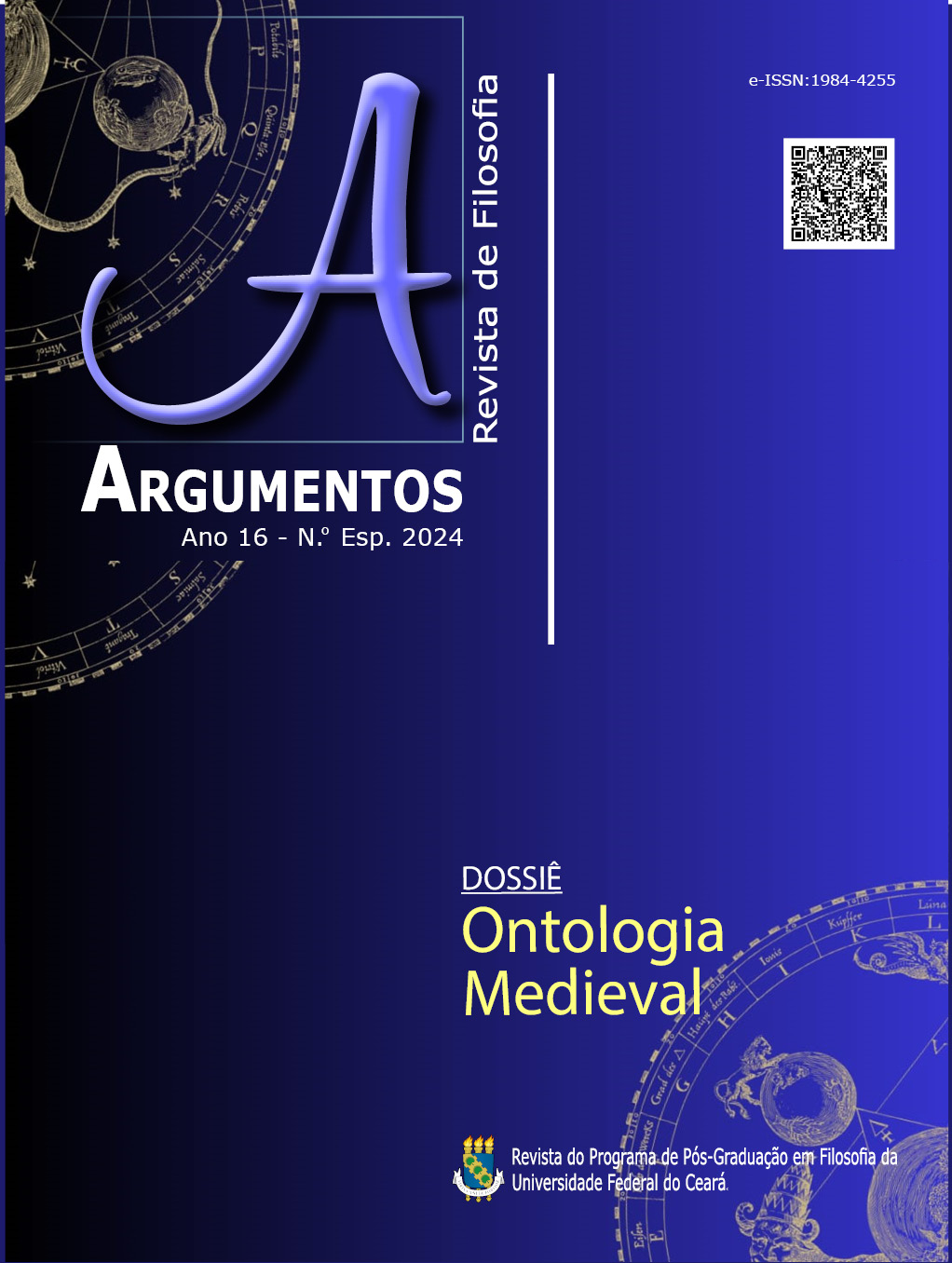The relationship between the will and intelligence and with sensibility, in all acts or morally right or wrong states
DOI:
https://doi.org/10.36517/Argumentos.16.esp.93623Keywords:
Intelligence. Sensitivity. Will. Benevolence. Selfishness.Abstract
The text is a translation of the eleventh chapter of Asa Mahan's Doctrine of the Will, originally published in 1945. In it, Mahan presents how he understood the relationship between the Will and the Intelligence and Sensibility of moral agents, with regard to the morality of their actions. In this context, he argues that the Will maintains such a relationship with these other faculties of the human mind that it must surrender to one of them, that is, in all moral actions (free actions) the Will is always in harmony with Intelligence, or in harmony with Sensibility. Thus, right and wrong, as far as free actions are concerned, do not lie in the external form of the actions, but in their source, that is, in the intention that originates them. Mahan defends a unity of moral action, in other words, he argues that moral agents act correctly, or act wrongly, without a middle ground. According to him, this is a principle of moral philosophy presented by reason, and also a principle of theology, presented by Revelation. According to this principle, the moral law requires the dedication of all the voluntary powers of moral agents to the promotion, in the highest degree, of the greatest universal good, as the ultimate end of their actions, and there is thus an identity of character between all moral agents who act correctly. In the following text, Mahan also clarifies that moral exercises, or voluntary states of mind, do not consist of excited states of Sensibility or some kind of emotion, but on the contrary, are characterized by an active state of the Will, which always chooses or rejects what the moral agent knows to be right or wrong. A sujeição voluntária aos impulsos da Sensibilidade, sem consideração pela obrigação moral é o que caracteriza o egoísmo, e este compreende todas as formas de vício, enquanto a benevolência compreende todas as formas de virtude.
Downloads
References
Bíblia Sagrada. Várias versões em português.
COUSIN, V. Elements of Psychology: included in critical examination of Locke’s essay on the human understanding, an in additional pieces. 3 ed. Trad. Caleb S. Henry. New York: Dayton e Saxton, 1842. p 430.
KANT, I. Fundamentação da Metafísica dos Costumes. Ed. bilíngue. Trad. Guido Antônio de Almeida. São Paulo: Discurso Editorial; Barcarolla, 2009.
MAHAN, A. Relation of the will to the intelligence and sensibility, in all acts or states, morally right or wrong. In: MAHAN, A. Doctrine of the Will. R. E. Gillet: Oberlin, 1845.
Downloads
Published
How to Cite
Issue
Section
License
Copyright (c) 2024 Silvério Becker

This work is licensed under a Creative Commons Attribution 4.0 International License.
Argumentos magazine is licensed under an International Creative Commons Attribution License.
The Magazine uses CC BY inclusion
1) The authors retain the copyright granted to the magazine or the right to initial publication, with the work regularly licensed under the Creative Commons Attribution, which allows the sharing of the work with acknowledgment of authorship and initial publication in this magazine.
2) The authors are authorized to contract additional applicable contracts, for non-exclusive distribution of the version of the work published in this journal (for example, publication in the institutional repository or as a chapter of the book), recognition of authorship and initial publication in this journal.
3) Authors are authorized and encourage to publish and distribute their work online (for example, in institutional repositories or on their personal pages) at any time before or during the editorial process, as they can generate productive changes, as well as increase the impact and reference of published work.




.jpg)










._._3.png)
1.jpg)
._._._.png)
